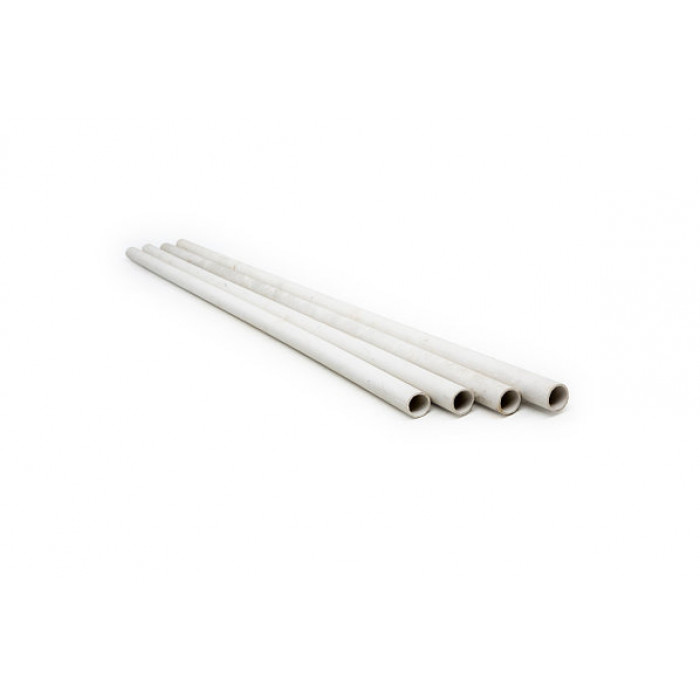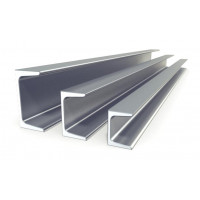Krivoy Rog MKR ceramic tube, LYTX ceramic fiber slab, ceramic fiber wool, paper, ceramic fiber refractory blankets and mats
Ceramic tubes are hollow insulators made of refractory technical porcelain (mullite silica). Able to withstand peak temperature loads (over 1700 degrees C), as well as high pressure of gaseous media for a long time. MKR ceramic tubes are used in the radio-electronic, fuel and energy industry, mechanical engineering, metallurgy, and the production of household appliances.
general information
Ceramic tubes are made by broaching followed by grinding. Raw materials for their production include kaolin clay and silicon oxide. The mass fraction of Al2O3 in such ceramics is more than 50%. The MKR tube is characterized by high resistance to thermal shock, mechanical strength, water resistance, and stable dielectric performance.
High-temperature sintering of ceramics gives insulators tightness, resistance to abrasive wear and chemical reagents. The ceramic insulating tube provides a reliable barrier to the spread of harmful substances, prevents contact of the insulated elements with the environment.
MKR tubes are produced in the form of hollow rods with a diameter of 12 to 40 mm, with a different number of channels (from 1 to 4). The configuration of the section can be of different shapes - a circle, an oval, an asterisk, a rectangle. The MKR tube can be produced with one blind end. The standard length of insulators is from 10 to 2000 mm.
Application
Technical ceramics are used in the production of electrothermal equipment. Spirals of heating elements, temperature sensors (thermocouples) are placed in tubular insulators. Mullite-silica tubes MKR serve as protective covers for ignition electrodes in gas equipment. The high thermal conductivity of ceramics fully preserves all the performance characteristics of electrical equipment. Insulators can serve as the basis for wire heaters: a spiral of fechral or nichrome wire is put on a porcelain rod. After that, ceramic tubes for furnaces are firmly fixed in the working chamber of the electrothermal resistance installation. The recommended temperature for the operation of insulating elements is 1350 degrees C.
Mullite-silica tubes with the addition of zirconium are used in the manufacture of high-voltage heating elements. The scope of such elements is the heating of railway passenger cars, the installation of heaters in electrothermal plates for the production of rubber products. Insulators with a high content of aluminum oxide are used in powerful thermal units in metallurgy, energy and mechanical engineering. Ceramic tubes are also used in laboratory instruments for the analysis of metals and alloys (to detect sulfur and carbon inclusions in their composition). You can buy products at a bargain price in our organization. The moderate cost of insulators consists of affordable prices for kaolin raw materials and simple production technology.
Advantages of MKR tubes:
- effective thermal insulation with fuel economy;
- high thermal stability and fire resistance;
- the material belongs to the class of non-combustible;
— resistance to thermal shocks;
- high chemical resistance;
– good machinability, quick and easy installation;
- good electrical insulating properties;
Application area.
MKR tubes are widely used in almost all existing industries: from household refrigerators, electric and gas furnaces, to powerful thermal devices in power engineering, mechanical engineering and metallurgy. In particular, for thermal and mechanical protection of thermoelectrodes, thermocouples and heating elements, as well as as a basis for wire heaters (a heater coil made of nichrome or fechral wire is put on the MKR tube and securely fixed inside the working chamber) in various kinds of electric resistance furnaces. In addition, ceramic tubes are an indispensable element in instruments for the analysis of alloys and metals (for example, when determining the presence of carbon and sulfur).
For use in gas analyzers (combustion devices), gas-tight tubes are manufactured using a special technology.
Mullite silica tubes are excellent insulators of a ceramic nature that can withstand high thermal and mechanical loads (high pressure) for a long period of time. They are made of high-quality heat-resistant technical phosphorus (mullite-silica composition) with the content of aluminum oxide (Al2O3, more than 50%) and ferum oxide (Fe2O3, less than 0.7%). Such ceramic tubes have a high thermal conductivity, which allows them to withstand temperatures over 1700 degrees Celsius and not overheat.
At the present time, MKR tubes are widely used in almost all existing industries: from household refrigerators, electric and gas ovens, to powerful thermal devices in the energy sector, machineryswarming and metallurgy. In particular, for thermal and mechanical protection of thermoelectrodes, thermocouples and heating elements, as well as as a basis for wire heaters (the heater coil is put on the MKR tube and securely fixed inside the working chamber) in various types of electric resistance furnaces. In addition, ceramic tubes are an indispensable element in instruments for the analysis of alloys and metals (for example, when determining the presence of carbon and sulfur).
Such mullite-silica tubes are manufactured in lengths from 10 to 2000 mm according to the standards, but other tube sizes can be ordered if required. Outwardly, they are rods or tubes of figured or round cross-section with a diameter of 12 to 40 mm. The maximum operating temperature of the material is 1350 degrees Celsius, and its fire resistance index reaches 1750 degrees Celsius. Ceramic elements have excellent electrical insulating properties and have a very low level of water absorption, which for MKR tubes is at a level of less than 0.2%. With a strength of more than 100 MPa, this insulating material withstands high mechanical loads, and the thermal resistance is at least 3 thermal cycles, which guarantees a long service life with proper handling. Another advantage is its environmental friendliness.
In addition, mullite-silica tubing is a fairly cheap material due to the availability of raw materials and the relatively low cost of the manufacturing process. They are manufactured in accordance with current standards and have all the necessary quality certificates from the manufacturer. And test samples of pipes from each batch undergo special tests to check the strength and thermal insulation properties before entering the market.
Ceramic tubes are hollow insulators made of refractory technical porcelain (mullite silica). Able to withstand peak temperature loads (over 1700 degrees C), as well as high pressure of gaseous media for a long time. MKR ceramic tubes are used in the radio-electronic, fuel and energy industry, mechanical engineering, metallurgy, and the production of household appliances.
Rigid, refractory, high temperature boards are made from mullite-silica fiber using organic and inorganic binders. The plates are a durable, rigid, well-workable mechanically, with high elasticity, having a wide range of operating temperatures and thicknesses of technological insulating material.
ADVANTAGES
high compressive strength, bending;
durability;
ease of installation and low labor costs;
dimensional accuracy, flat surface;
resistance to erosion and flame;
lack of fragility with a uniform structure;
low thermal conductivity and low heat capacity;
thermal shock resistance.
APPLICATION
thermal insulation of thermal furnaces;
thermal compensation lining layers;
thermal insulation materials for insulation;
kilns for ceramics, glass industry;
reforming furnaces, catalysis;
thermal insulation of gas ducts, chimneys;
furnaces in the aluminum industry;
fire protection systems;
thermal insulation of steel-pouring ladles.
Ceramic tubes are very fragile and require very careful packaging during transportation. It is better to wrap each tube separately and then put it in a common box. Such tubes can withstand very high temperatures - more than one thousand seven hundred degrees Celsius. They are used in a variety of industries: mechanical engineering, metallurgy and even radio electronics.
No questions about this product, be the first and ask your question.


